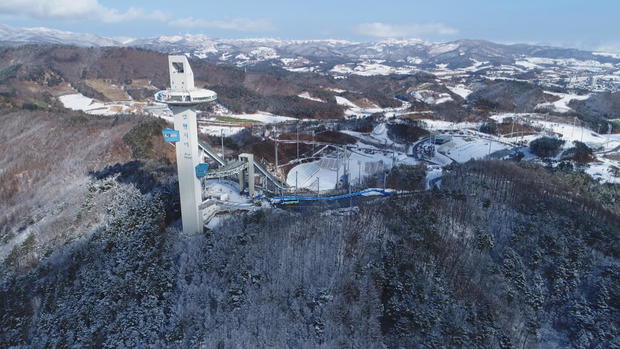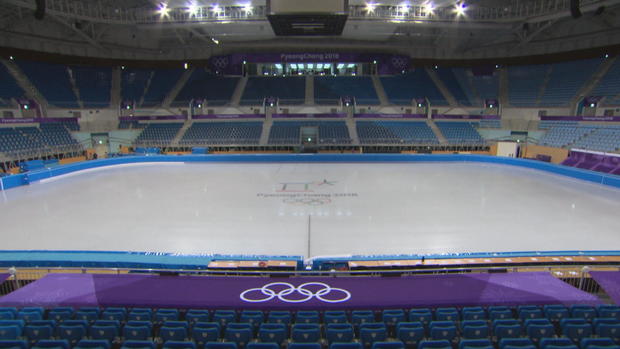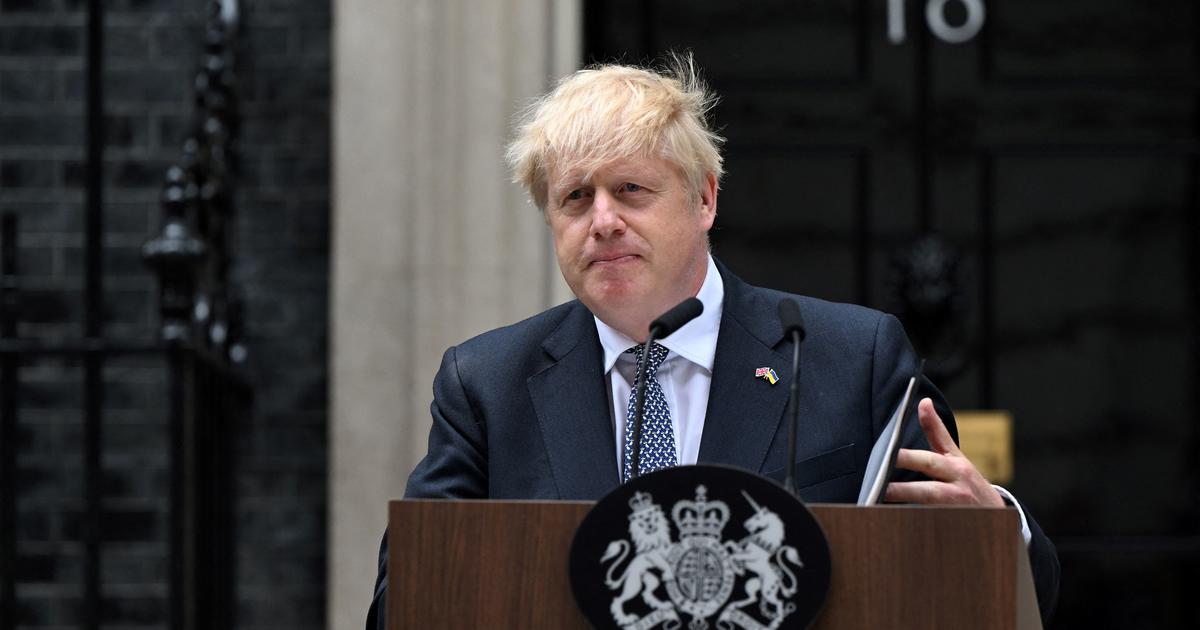Will Olympic investments in Pyeongchang pay off?
Host cities hope the Olympics bring a huge boost in tourism, but it often comes at a high price. The South Korean Olympic stadium in Pyeongchang cost $60 million and it will be used just four times before it's completely re-purposed and turned into a smaller venue, along with an exhibition center and Olympic Museum.
Overall, the Pyeongchang games are estimated to cost nearly $13 billion, paid for largely by the Korean government, but the building binge there began even before they were awarded the games, reports CBS News correspondent Ben Tracy.
- Olympics 2018: Drills held in Pyeongchang prepare for threats of terrorism, war
- North, South Korea agree on 1st ever joint Olympic team
They built a massive ski jumping facility in Pyeongchang back in 2009 in part to show that South Korea was serious about hosting the games. It worked -- and now the county of just 45,000 people has an Olympic stadium that can seat 35,000 of them. Ice rinks worth $400 million have been built. There's a $100 million bobsled and luge track, and a brand new $200 million downhill skiing course.
Sports economist Sung-Bae Roger Park says they need to minimize the spending. "When you have a party like Olympic Games everyone is celebrating but after the party is over somebody is gonna clean up and somebody pay for the money so I think that will be taxpayers," he said.
Dozens of unused Olympic venues now span the globe. Most of the facilities built in Rio for the summer games less than two years ago are already abandoned and rotting. Twelve venues were built for the Pyeongchang games costing more than $1.5 billion. There are no post-Olympic plans for at least three of them including that $200 million downhill course which is likely to be bulldozed.
They're also not sure what they're going to do with the $120 million Olympic speed skating oval after the games. A local company did say it would be a great place for storing frozen fish.
But some venues will have an Olympic afterlife. The figure skating rink will become an indoor gym, the ski jump landing area doubles as a soccer field, the entire athlete's village has been sold off as condominiums, and the Olympic stadium will become a park and museum.
The one thing they have built that will likely get used long after the games is a bullet train. It takes people from downtown Seoul to Pyeongchang in just about 90 minutes. The old train took about six hours.
South Korea spent $10 billion on infrastructure including the train and new highways.
"Now that we have this great infrastructure and world-class venues the athletes are coming up," said Kim Jae-Yul, executive vice president of the Pyeongchang Organizing Committee. "We are certain the Pyeongchang games will have a lasting impact in winter sports in Korea so we are very excited about it."
The International Olympic Committee used to demand brand-new venues, but now it encourages host cities to upgrade or reuse existing facilities. Beijing will host the 2022 Winter Olympics and plans to once again use its iconic "bird's nest" stadium that made its debut during the 2008 Summer Olympics.





